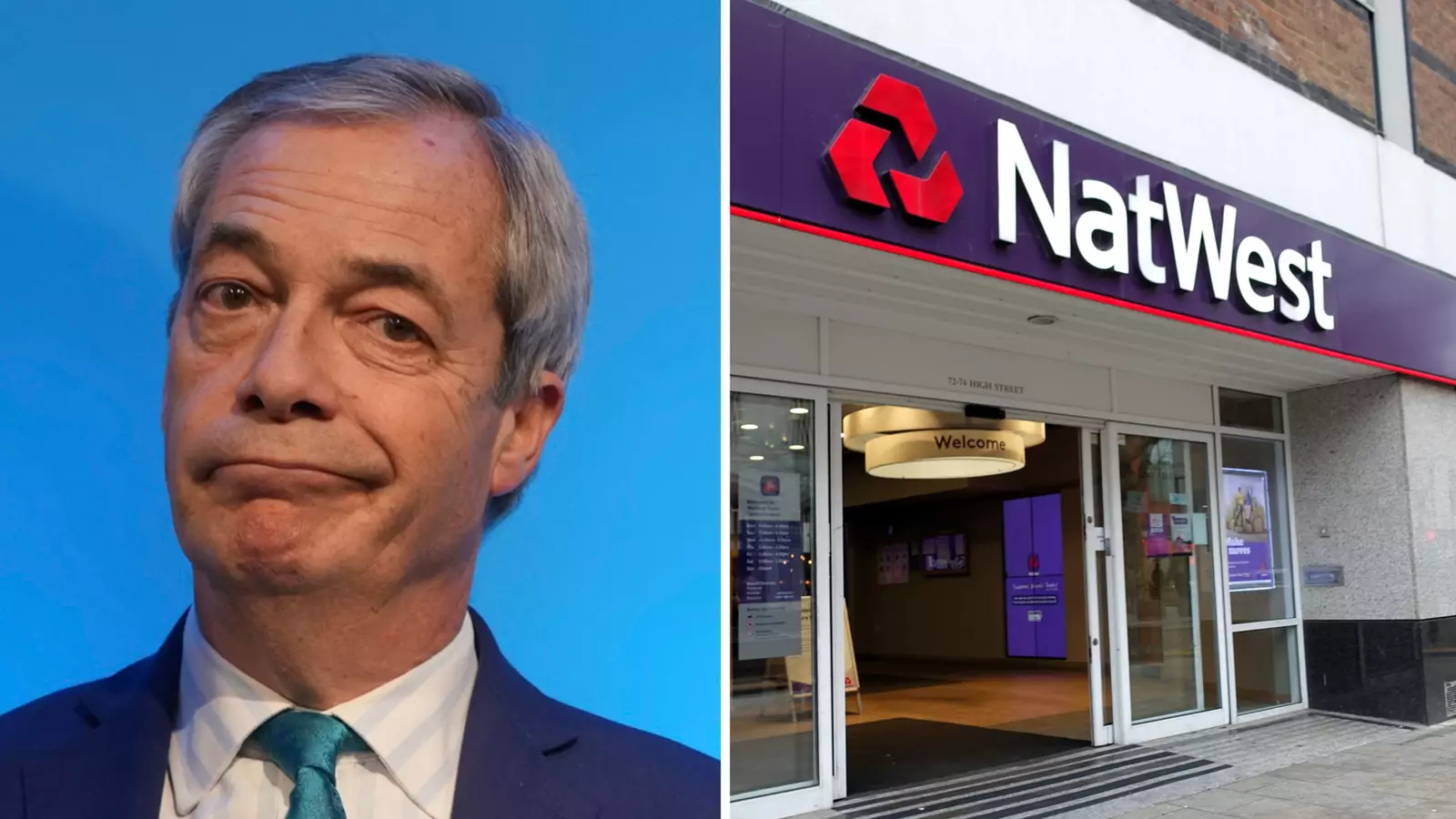The recent confrontation between Nigel Farage and NatWest Group has reignited discussions about the intersection of politics, corporate governance, and consumer rights in the United Kingdom. Farage, the leader of the Reform UK party, is reportedly considering initiating private criminal proceedings against the banking giant, a move that could have far-reaching implications for both Farage’s political ambitions and the financial sector as a whole.
The debanking scandal that has enveloped NatWest was sparked by allegations surrounding the closure of accounts belonging to Farage by its Coutts subsidiary. Initially, NatWest maintained that the account closures were motivated by commercial reasoning; however, Farage uncovered internal communications suggesting that his political beliefs played a significant role as well. This has raised questions about the ethics and transparency of bank operations, particularly concerning their treatment of politically exposed persons (PEPs).
The controversy gained traction over the summer of 2023, culminating in the resignation of Dame Alison Rose, NatWest’s former CEO. The government’s response was swift; the then Prime Minister Rishi Sunak, alongside Chancellor Jeremy Hunt, signaled their lack of confidence in Rose’s leadership, heightening tensions between political leaders and financial institutions. This precarious situation illustrates how closely entwined the banking sector is with political dynamics, and how the mishandling of customer relations can result in cascading consequences for corporate leaders.
Recent reports indicate that Farage has engaged Chris Daw KC of Lincoln House Chambers to investigate potential grounds for a private criminal prosecution against NatWest. This escalation is noteworthy, as private criminal proceedings are relatively rare in the UK and often indicate a deep-seated belief that corporate malfeasance has occurred. Farage’s hiring of a leading criminal counsel posits serious implications for NatWest, especially in light of allegations that the bank’s behavior may have crossed ethical and possibly legal lines.
The decision by Grosvenor Law, representing Farage, to instruct Daw was characterized as an exploration of “unfinished business.” Dan Morrison, a spokesperson for Grosvenor Law, conveyed Farage’s apprehensions about potential criminal issues related to the bank’s operations, though he refrained from elaborating on the specifics of these concerns.
The Political Landscape: A Shift in Power Dynamics?
Simultaneously, the ongoing scandal has altered the political landscape in the UK. Farage has increasingly positioned himself as a key player, with recent opinion polls suggesting a significant shift in public sentiment. In some surveys, Reform UK has surpassed both Labour and the Conservative Party in voter support, indicating that Farage’s legal crusade may complement his political goals. His party’s performance in the last general election, where it secured several seats, has further solidified his image as an emerging political force.
Moreover, Farage’s ties to influential figures like former President Donald Trump have led many to speculate about his potential to influence Brexit-related dynamics and other regulatory matters in the UK’s political sphere. As the country gears up for elections in 2029, the Reform leader’s increasing visibility may indicate a shift in how the UK electorate perceives traditional party lines.
The Countdown to Government Sell-Off
As the government prepares to sell off its remaining stake in NatWest, currently below 8%, the timing of Farage’s legal moves raises questions about the interplay between state ownership and corporate accountability. The anticipated release of NatWest’s annual results coinciding with Farage’s push for a criminal investigation might be viewed as a tactical maneuver that leverages public timing to amplify his claims against the banking institution.
With the City watchdog’s instructions to enhance protections for PEPs, including parliamentarians and their families, there is now mounting pressure on banks to demonstrate accountability and transparency. The outcome of Farage’s legal pursuits could set significant precedents in this regard, potentially reshaping how financial institutions interact with politically active individuals.
The conflict between Nigel Farage and NatWest represents more than just a personal grievance; it encapsulates larger themes surrounding corporate governance, the fallout of political actions on financial entities, and the potential repercussions for consumer rights in the banking sector. As Farage’s legal endeavors unfold and the political landscape continues to evolve, all eyes will be on NatWest and its response to not just regulatory demands but also the shifting tides of public opinion and political influence. The ramifications of this high-profile case have the potential to alter the framework within which financial institutions operate, making it a pivotal moment in British political and economic history.

